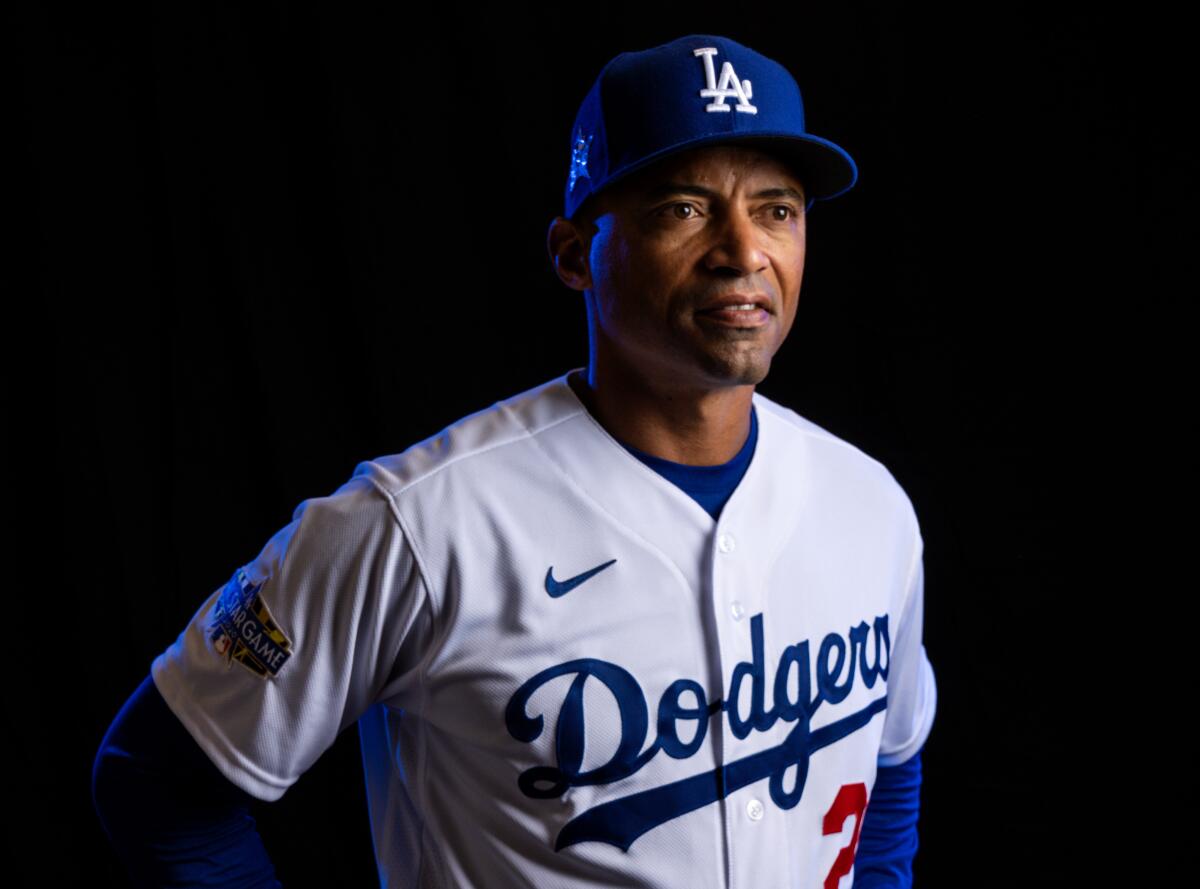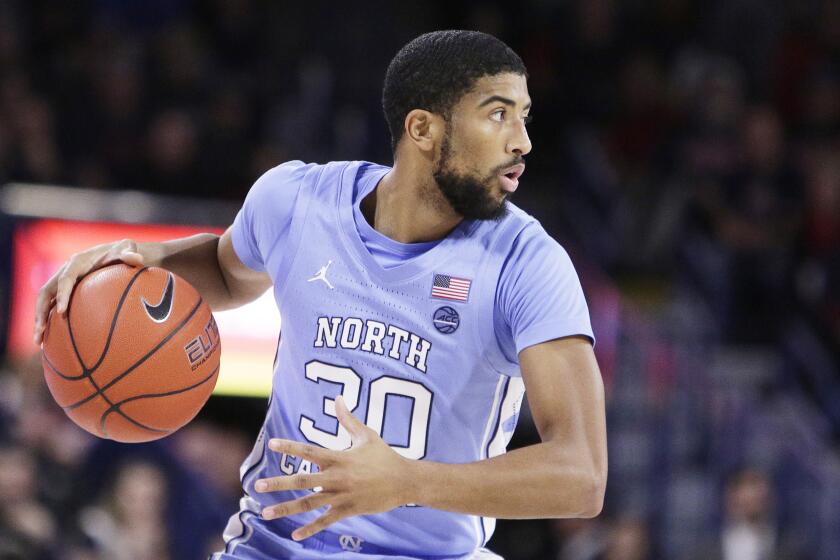Dodgers coach George Lombard finds his social justice voice through his mother

)
George Lombard doesn’t believe just speaking out about racial injustice will produce positive change. Plans are required. Discussions with leaders are necessary. The process will be arduous.
But the Dodgers’ first base coach and former major league player knows the platform provided in major professional sports is significant. And in recent months he has found that his voice resonates. Not because of his stature or accomplishments in his corner of the world. But because of his mother’s story.
Posy Lombard was a white woman from Massachusetts. She was also an activist who dedicated her life to fighting racism. As a college student in the 1960s, she traveled to the Jim Crow South to join civil rights protests. She was arrested multiple times. The FBI’s file on her was 300 pages long. She worked tirelessly within the movement and became friends with leaders, including the late Rep. John Lewis. Then she raised three biracial children on her own in Georgia.
Last Saturday was the 35th anniversary of her death from injuries sustained in a car crash. She was 41. Her middle son was days from his 10th birthday. For the next 3½ decades, as he became one of Georgia’s top high school football players, then a professional baseball player, then a coach, George Lombard didn’t dig into his mother’s past.
“I think a lot of this has had to do with finding myself, understanding my mom,” Lombard said in a recent telephone interview. “And when you lose a parent at that young age, as I’ve opened up and learned, you really shut down a lot of things. There was a lot of things that were never talked about. And I get very emotional talking about it, but it’s been like healing for me to talk and spend time with my brother and sister more.”
Julio Urías has struggled in the first inning of games this season, but he didn’t run into any problems during the Dodgers’ 6-3 win over the Diamondbacks.
The journey began when he returned home in March from spring training unsure when the Major League Baseball season would resume. He was looking to spend time on bettering himself. He chose to improve his public speaking skills. He holds aspirations to become a major league manager. He figured having the ability to captivate an audience would help.
Before long, he realized his mother’s story could be an avenue to develop the skill.
Posy Lombard was a senior at Smith College, an all-women’s institution in western Massachusetts, when she left for Alabama and the front lines of the civil rights movement in 1965. She was arrested in Montgomery and spent a week in jail. She attended a speech by the Rev. Martin Luther King Jr. in Montgomery. After graduation, she went back to the South, this time to Mississippi, to continue her efforts. She was arrested and jailed again. She confronted armed members of the Ku Klux Klan.
George Lombard shared those details when he began calling friends to talk about his mother. At first, he spoke for five minutes and got stuck. He was up to 15 minutes by the end of the week. Then he addressed more than 100 high school athletic directors on a video call. He recalled it was emotional. The feedback was “amazing.”
That was around the time George Floyd died after a police officer knelt on Floyd’s neck in late May. Lombard’s story about his mother became all the more relevant as protests surfaced around the country. Members of his mother’s high school class reached out. They wanted to put stories together of her. They ended up raising $10,400 and donated it to a charity Lombard and his siblings chose. He spoke at a company’s town hall event in front of 200 people and received another $10,400 for a charity of their choice.
Meanwhile, his voice was highlighted within the Dodgers organization. The team addressed the country’s events on video calls during the MLB shutdown and Lombard spoke about his mother. And yet, Lombard said, a sense of guilt surfaced. He wondered why he hadn’t done more to that point. He thought he should have been more aware of the subject earlier. Then he spoke with colleagues. They emphasized the value of his voice and perspective.
The novel coronavirus has altered the way many in sports have had to operate in terms of summer camps, recruiting and workouts. Many of the changes could be here to stay.
“They expressed to me: ‘George, you’re doing amazing work. The platform is only growing for you and it’s going to improve,’ ” Lombard said. “And that made me feel good.”
Last week, Lombard spoke with the Jackie Robinson Foundation and Dodgers Foundation. The Dodgers Foundation later announced it was partnering with Lombard and the Posy Project, a fund created in his mother’s memory, to donate $42,000 in honor of Posy Lombard to the Equal Justice Initiative, a nonprofit organization based in Alabama combating mass incarceration, excessive punishment and racial inequality.
It’s more than Lombard ever envisioned happening just months ago. He sees it as just a start.
“It’s very important for me to continue to be educated,” Lombard said. “I think it’s important for all of us to be educated and learn more so we can teach others.”
More to Read
Are you a true-blue fan?
Get our Dodgers Dugout newsletter for insights, news and much more.
You may occasionally receive promotional content from the Los Angeles Times.











